
9 Great Arab Cult Classics
The American University in Cairo Press recently announced its January 2017 release of the Diaries of Waguih Ghali. As I tweeted about it, I was reminded that I am not the lone member of the Ghali-cult club.
https://twitter.com/RosalineElbay/status/774218503918329857
This is the best news. https://t.co/30ecWn2JC0
— Saleem Haddad (@sysh) September 9, 2016
I have waited 15 years for this. https://t.co/CWxK1nKYqU
— nariman youssef (@nariology) September 9, 2016
Yessss!
AUC Press to Bring Out Edited 'Diaries of Waguih Ghali' https://t.co/0ECkWEULbm via @arablit— leaner meaner Amina (@joygarnett) September 8, 2016
For the uninitiated: The Egyptian writer Waguih Ghali published just one novel, Beer in the Snooker Club, in 1964. Ghali wrote it in English, but it’s been a cult classic in Arabic as well, translated by acclaimed Egyptian poet Iman Mersal and Reem al-Rayes. The book didn’t win any prizes, and Ghali committed suicide in 1969, cutting short his literary career.
Yet this book has been remembered. Despite Ghali’s brief flowering and his lone novel’s imperfections, there is a whole subculture of us Ghaliwayites. There aren’t any t-shirts or mugs or cosplay (to my knowledge), but we are a tough little fandom, with a good few of us seeing recent Egyptian history through the lens of Ghali’s prescient novel.
This gush of Ghali-love also led me to wonder on Twitter — and Facebook — about other Arab cult classics.
There were several side-discussions over what constitutes a cult classic (can Season of Migration to the North count? isn’t it too widely known? what about Sonallah Ibrahim’s Zaat? before the TV series, sure; but after?).
This list may not stand up to a lawsuit, but eight more in order of publication date:
2) Ibn Fadlan’s Mission to the Volga (920 AD?)

It wasn’t considered a classic in the author’s own day — just an account of an exotic trip to the wild north — but has since gathered fans who are interested in Arab-Viking connections. It inspired Michael Crichton’s Eaters of the Dead and the film The 13th Warrior.
3) Ahmad Faris al-Shidyaq’s Leg over Leg (1855)
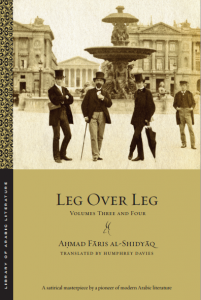
Leg over Leg, brilliantly translated by Humphrey Davies, made the 2016 National Translation Award longlist and the 2014 Best Translated Book Award shortlist, yet remains the playground of relatively few devoted readers.
Davies said half-jokingly in 2013 that he sympathized with other translators who were not able to be first in bringing this book to English: “It’s like, suppose you were a mountaineer in 1953 sitting at home and saying to yourself, ‘Gee, I’d like to climb Mount Everest!’ and then you open the newspaper and there’s Edmund Hillary standing on the summit! Quel chagrin!”
Also: It’s al-Shidyaq who started the joke that Shakespeare was written by a “Sheikh Zubayr,” later repeated by (a credulous) Ghaddafi.
4) Albert Cossery’s The Jokers (1964)
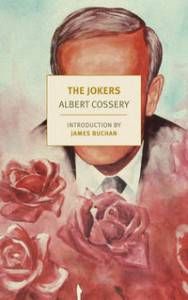
Published in 1964, it could also be a lens through which to see contemporary Egypt. As Jessica Crispin wrote in her NPR review: “[W]hat do you do when one corrupt government is followed by another far worse, when there is no hope of ever seeing a sane, reasonable person in a position of power? If you’re a character in The Jokers, Albert Cossery’s satiric sixth book to be translated from French to English, you match the absurdity of the political situation with absurdity of your own.”
5) Etel Adnan’s Sitt Marie-Rose (1977, 1978)
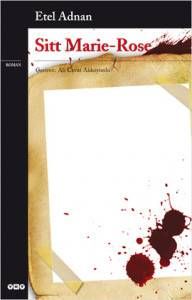
Her poetry also gets steady attention in certain quarters, written in English or translated from the French.
But it is her 1978 novel that is a pivot for the Adnan cult. It was published first in Arabic translation, in 1977, and was set before and during Lebanon’s civil war. It’s based on the story of a woman kidnapped, later murdered, by the Christian Phalangists for her support of Palestinians. Many still consider it Lebanon’s defining civil-war novel.
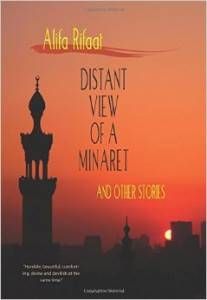
These stories were not collected together in Arabic. Instead, they were pulled from journals and brought together by pioneering Arabic-English translator Denys Johnson-Davies.
It was probably their mention by Chinua Achebe, more than anything else, that elevated Rifaat’s stories to a devoted following.
7) Ahmed Bouanini’s L’hôpital (1990)
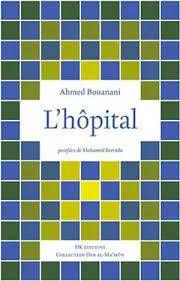
One of the reasons L’hôpital continues to fascinate, according to Moroccan poet and translator Berrada, is it asks the question “Are we [Moroccans] a people?” The book builds an answer to this question over the course of its slim hundred pages.
8) Arwa Saleh’s The Stillborn (1997)
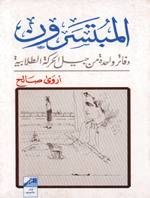
Translator Samah Selim has taken on the job of bringing the text into English for Seagull Books. In a recent talk, Selim said, “The book is only 80 pages long. It is a relentless, sometimes wistful, sometimes bitter, often raging but always incisive critique…from what one could call a proto-feminist perspective.”
Hassan Khan writes more about Saleh and her “absolutely necessary” book in Bidoun.
9) Ahmed Alaidy’s Being Abbas al-Abd (2003)
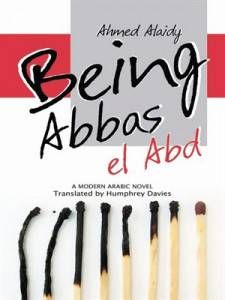
Publisher Neil Hewison put it on his “5 books to read before you die” list, writing that the novel is “weird, funny, unconventional in form and content, short but effective and memorable.”
The book has a devoted following and has been translated into Dutch (2008), Italian (2009), Turkish (2009), French (2010), Danish (2011), Russian (2013), and Swedish (2015).
Others books that folks persuasively argued for: Egyptian novelist Youssef Rakha’s Sultan’s Seal (2011), translated by Paul Starkey; Mustafa Khalifa’s The Shell (2008), forthcoming from Interlink; Moroccan writer Mohamed Choukri’s For Bread Alone (1973), translated by Paul Bowles; Saudi writer Ahmed Abodehman’s, La ceinture (2000), untranslated.













